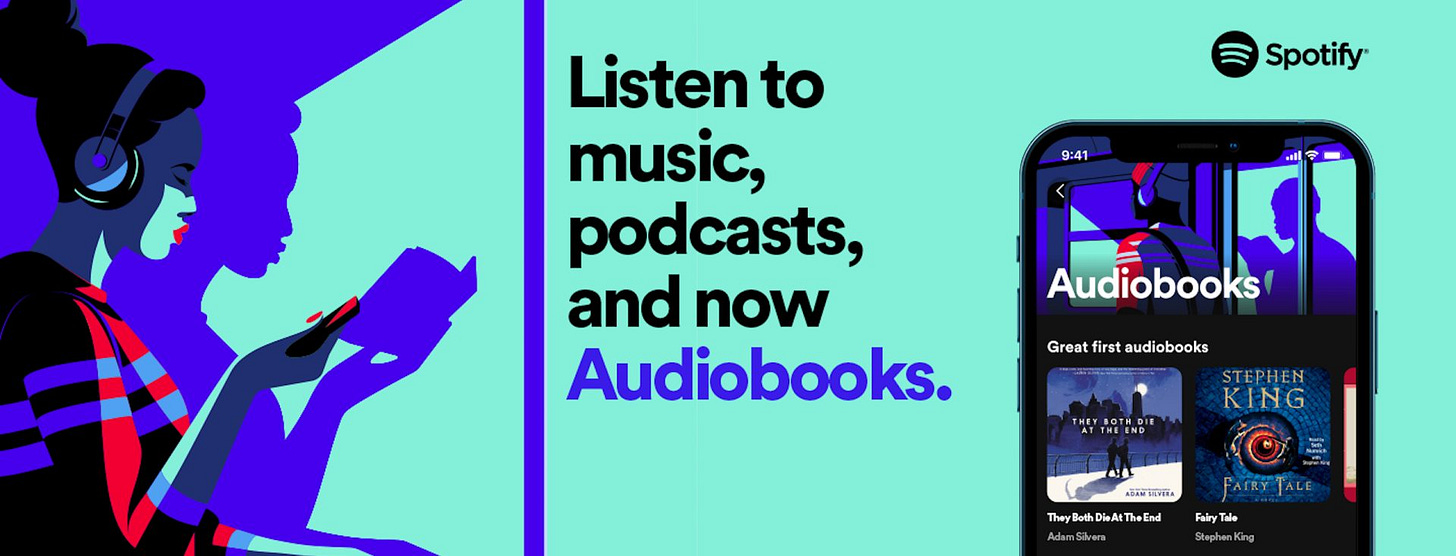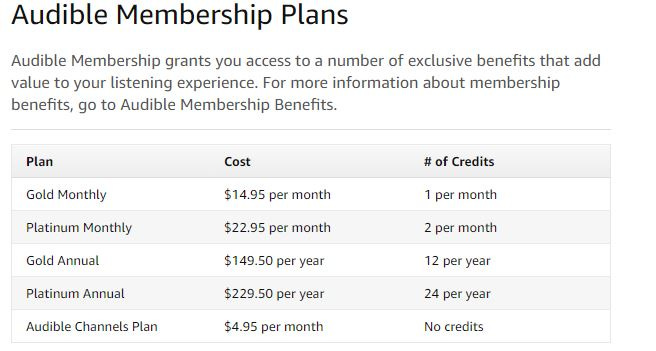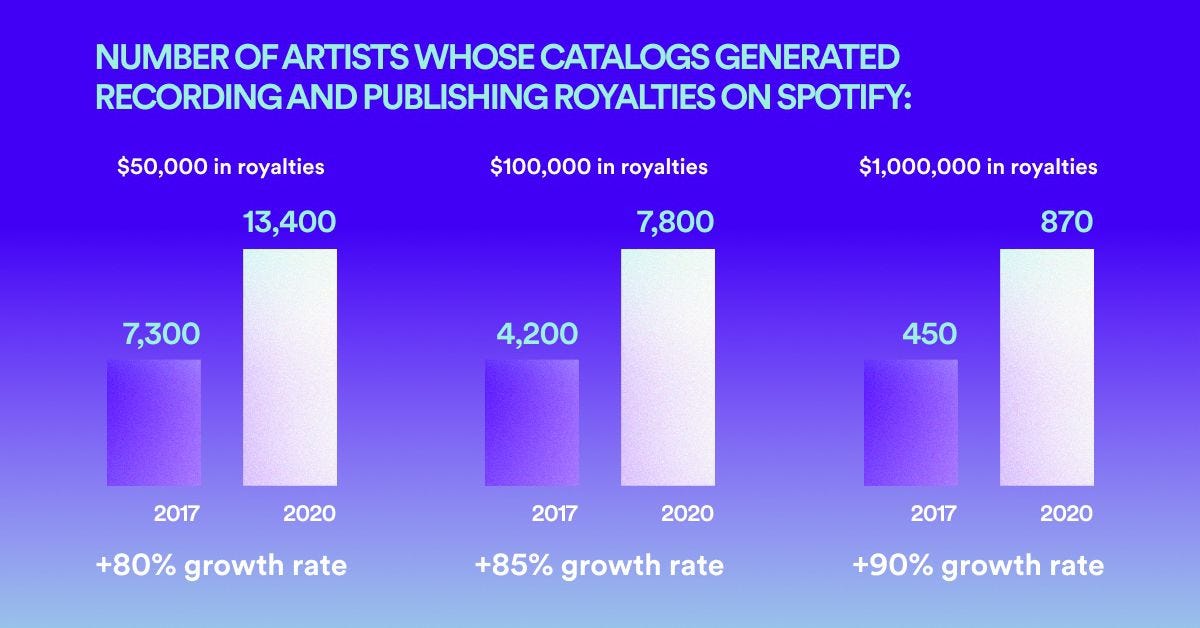Why Is Spotify Getting Into Audiobooks?
Last week, Spotify announced their foray into Audiobooks for the US market, in a bold move to disrupt a $4B industry
We write a weekly newsletter on all things Music, and the Business and Tech behind it. If you’d like to get it directly in your inbox, subscribe now!
Happy Monday everyone!
It’s been a while since I’ve written here, with the social network for music we’re building shaping up quite well 📲
If you’re an iOS user & interested to be an early bird to our music app, Sign Up for the beta version, right here 👇🏻
Elsewhere, Spotify finally announced their foray into Audiobooks last week, an industry estimated to be north of $4B and signalled yet another move into cementing their strategy to diversify away from music, and become the leading audio platform globally.
Why is this such a big deal?
Back in June, Spotify’s CEO- Daniel Ek, laid out its ambition to double down on Audiobooks at Spotify’s Investor Day, noting that the entire industry is expected to grow from $3.3B to $15B by 2027.
So what is Spotify doing about it?
Starting this week, listeners in the US will be able to purchase and listen to more than 300,000 audiobook titles on the platform 📚
US users will see Audiobooks alongside music and podcasts as a section in their library, in search, and in their curated recommendations on Home 👇🏻
How do users pay for it?
Unlike music and podcasts, Audiobooks will not be covered under the usual subscription of Spotify, but rather would have to be purchased separately by users.
Each Audiobook will come with a lock on the play button, and re-directs to a web-page where users pay for it, and can then access it from the Spotify app whenever they want 🔓
Sounds straightforward right? However, dominating the Audiobooks market isn’t as easy as it may sound.
In fact, there’s already a player with an effective monopoly on it- Audible.
Made it this far? Seems like you’re enjoying our content! Why not share this and help us grow this newsletter?
While I could not find the official figures for its market share, Audible was founded back in 1995 and later acquired for $300M by Amazon in 2008, controlling more than 50% of the North American market for Audiobooks.
So why would Spotify want to enter into this market, given their obvious lack of a head-start?
Turns out, there’s something fundamental about how Audiobooks are priced by Audible, which gives Spotify a shot at disrupting this entire industry.
And this isn’t me pontificating upon it.
Michael Mignano- the co-founder of Anchor, a podcasting platform recently acquired by Spotify, broke down the economics of why Spotify’s entry into this segment is a game-changer for 99% of authors 👇🏻

TLDR //
The way Audible prices its audiobooks means that users pay a flat subscription fee of $7.95 for its ‘Plus’ version, which gives access to 200k+ books and $14.95 for its ‘Premium’ version, which gives 1 ‘Credit’ per month, for downloading any book you want, and keeping it forever.
What’s the problem with this?
Under this model, every book is pretty much priced the same, whether it’s a Shakespeare or a toddler’s fairy tale.
And while that might be great for consumers, their incentive to use credits for purchasing a low value book is very less, which ends up shifting all the focus on 1% of the most successful authors.
Leaving the majority of others with practically no distribution or marketing support from Audible 🤷♂️

With Spotify now introducing a pricing model that allows for creators to charge whatever they want, it’ll be very interesting to see how the long tail of authors will suddenly become more discoverable on the platform, and even earn a decent living off their audiobooks.
Why Can’t This Be Applied to Music?
If you’ve been following this newsletter or the general economics of streaming platforms, it’s no secret that the entire model of paying artists is pretty opaque.
Artists barely make $0.004 per stream on Spotify, resulting from the ‘consume all you want for a flat fee’ pricing structure of streaming platforms, which shifts the favour massively towards the 1% of the top pop artists on the platform.
If you’d like to revisit how that model works, our newsletter on ‘Streaming Wars’ might be a good starting point 👇🏻
So if Spotify is ready to disrupt this model by introducing gated content in the audiobooks industry, why not do the same for music?
Turns out, that while there are plenty of reasons for the same, the primary one might be the friction from Record Labels, especially the ‘Big 3’- Sony, Warner & Universal, who manage the Top 1% of all artists globally.
Why would they be against this?
Because unlike the 99% of artists, the top 1% actually make the most money for streaming, because of how the royalty structure is set up 👇🏻
And guess who controls the ownership of these 1% of the biggest artists?
Tada- The Big 3 Labels of course.
Why would they want to change the status quo then?
As unfair and twisted that might sound, it really is the harsh reality of music streaming.
What’s The Solution?
As an article in Music Business Worldwide also noted, Spotify’s strategy of gated content for Audiobooks can well be experimented with in the music streaming industry as well.
Imagine letting fans pay for exclusive access to an album or song, a few weeks before the artist releases it officially for everyone, and giving a top supporter badge or maybe even an NFT to signal their fandom on the platform.
Even if a small % of an artists’ fanbase actually do so, the revenues generated from the same would be significantly meaningful compared to the current streaming royalty payouts 💸
What do you guys think? Would you pay for something like this to support your favourite artists and show off your fandom?
Let me know in the comments below! Have a great week everyone 💪🏻
If you liked this newsletter from Incentify, why not share it with someone you like?
P.S- Follow us on Instagram and Twitter for more such content on all things Music and Culture, now!








